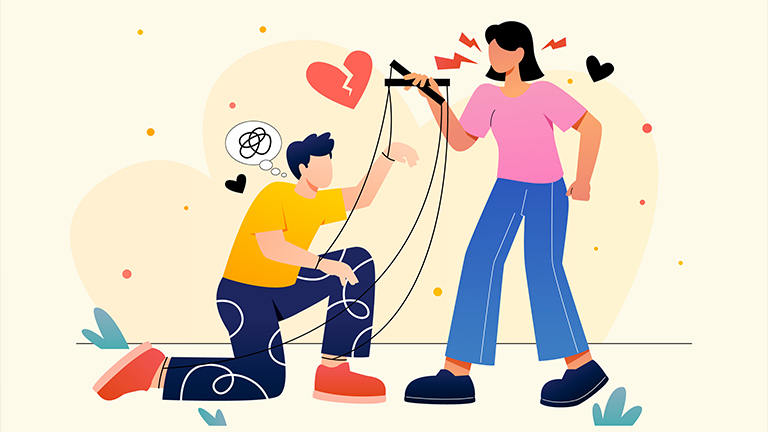Relationships should bring joy, support, and growth—but when they turn toxic, they can cause emotional, psychological, and even physical harm. Recognizing the signs of a toxic relationship early can help you take action before the damage becomes severe.
In this guide, we’ll explore:
- The definition of a toxic relationship
- Emotional, behavioral, and social red flags
- Long-term effects of staying in a toxic dynamic
- Steps to fix or leave an unhealthy partnership
1. What Is a Toxic Relationship?
A toxic relationship is one where one or both partners engage in behaviors that create emotional distress, manipulation, or control. Unlike healthy disagreements, toxicity involves persistent negativity, disrespect, and harm.
Common Misconceptions:
- “All relationships have ups and downs.” (Toxicity goes beyond normal conflict.)
- “They’re just stressed—it’s not abuse.” (Excusing harmful behavior enables toxicity.)
- “Love means putting up with everything.” (Healthy love includes respect and boundaries.)
A toxic relationship can be romantic, familial, or even a friendship. The key factor is a consistent pattern of harmful behavior that damages well-being.
2. Emotional & Psychological Signs of Toxicity
Constant Criticism & Put-Downs
A toxic partner frequently belittles you, mocks your interests, or makes you feel inadequate. Instead of constructive feedback, they use words to demean:
- “You’re so stupid for thinking that.”
- “No one else would put up with you.”
This erodes self-esteem over time.
Gaslighting & Manipulation
Gaslighting in relationships makes you doubt your reality. A toxic person might:
- Deny saying hurtful things (“You’re too sensitive—I never said that!”)
- Blame you for their actions (“You made me yell at you!”)
This psychological abuse makes victims question their sanity.
Guilt-Tripping & Emotional Blackmail
A manipulative partner uses guilt to control you:
- “If you loved me, you’d do this for me.”
- “After all I’ve done for you, this is how you repay me?”
This creates obligation rather than genuine care.
3. Behavioral Red Flags
Controlling Actions
A toxic partner may:
- Isolate you from friends/family
- Monitor your phone, emails, or social media
- Dictate what you wear or who you see
This isn’t protectiveness—it’s dominance.
Volatile Mood Swings & Unpredictability
Walking on eggshells? A toxic person’s moods shift rapidly—warm one moment, cruel the next. This instability keeps you anxious and off-balance.
Disrespect for Boundaries
Healthy relationships honor limits. A toxic partner ignores them by:
- Pressuring you into sex, loans, or favors
- Dismissing your need for space (“You’re overreacting!”)
4. Physical & Social Warning Signs
Aggression or Threats
Even “minor” aggression (throwing objects, blocking exits) escalates over time. Physical abuse often starts with “small” acts.
Public Humiliation or Belittling
A toxic person mocks you in front of others to assert dominance. They may disguise it as “jokes,” but the intent is to shame you.
Sabotaging Your Social Life
They might:
- Start fights before important events
- Badmouth you to friends
- Make you choose between them and others
This isolates you, increasing their control.
5. Long-Term Effects of Toxic Relationships
Staying in a toxic dynamic harms mental health, leading to:
- Anxiety & depression (constant stress wears you down)
- Eroded self-worth (believing you “deserve” mistreatment)
- Trauma bonding (addiction to highs/lows, like Stockholm Syndrome)
Many victims normalize toxicity, making it harder to leave.
6. How to Fix or Leave a Toxic Relationship
Set Firm Boundaries
- Clearly state unacceptable behaviors (“I won’t tolerate yelling.”)
- Follow through with consequences (“If you insult me, I’m leaving the conversation.”)
Seek Professional Help
- Therapy (individual or couples counseling)
- Support groups (for emotional abuse survivors)
Safety Planning for Abuse
If you’re in danger:
- Document incidents
- Save money secretly
- Contact domestic violence hotlines (e.g., National Domestic Violence Hotline: 1-800-799-SAFE)
7. FAQs About Toxic Relationships
Can a Toxic Relationship Be Fixed?
Only if both partners acknowledge the toxicity and commit to change (often with therapy). One-sided effort rarely works.
How Do I Know If I’m the Toxic One?
Self-reflect: Do you…
- Manipulate to get your way?
- Dismiss your partner’s feelings?
- Refuse to take accountability?
If yes, seek help to change.
Why Is It Hard to Leave a Toxic Partner?
- Fear of being alone
- Financial dependence
- Trauma bonding (addiction to intermittent affection)
Final Thoughts
Recognizing the signs of a toxic relationship is the first step toward reclaiming your well-being. Whether you set boundaries or leave, prioritize your mental and physical safety.
Need help? Reach out to therapists, trusted friends, or abuse hotlines. You deserve a relationship built on respect, trust, and genuine love—not control and pain.



